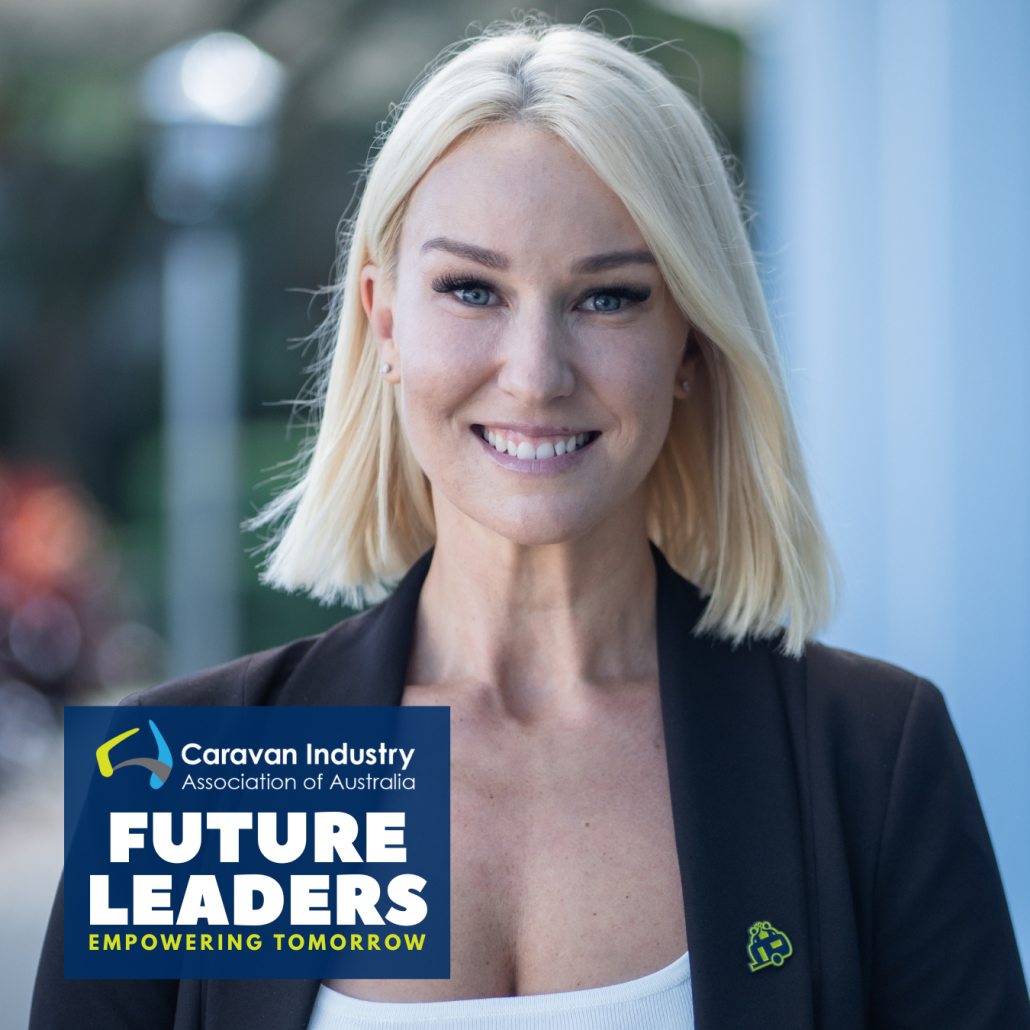Future Leaders: Erin Stevenson – Driving digital change

Erin Stevenson has propelled Newbook’s growth from tech start-up to leading hospitality platform.
Combining hands-on experience with a sharp eye for operational strategy, Erin is helping caravan holiday parks streamline their digital operations and deliver exceptional guest experiences.
In this edition of our Future Leaders series, Erin unpacks shifting consumer expectations, the push for digital transformation and why leadership development is fundamental to the industry’s future.
Can you start by telling us about your current role and your professional background?
Erin Stevenson (ES): My journey in the tourism and hospitality industry began at my parents’ resort, where I developed a deep passion for delivering exceptional experiences.
This foundation led me to join Newbook, a small technology start-up, 11 years ago as one of the company’s first product trainers. With no existing training program or processes in place, I took the initiative to build frameworks that supported both the business and its clients.
Recognising the need for operational development, I transitioned into the role of Chief Operating Officer, where I have focused on scaling up the business. Over the past 11 years, I have led and expanded the business’ operations, ensuring efficiency, client satisfaction and sustainable growth. This has helped position the company for long-term success, including two acquisitions.
Through innovation, strategic execution and a relentless focus on customer success, Newbook has transitioned from a start-up into an industry-leading hospitality management platform – a journey I’m very proud to be part of.
Based on this experience, what do you see as the biggest challenges facing the caravan holiday parks sector, and what solutions do you propose?
ES: The expectations of today’s travellers are vastly different from those of even two years ago, yet many businesses fail to recognise and adapt to this shift. It’s crucial for caravan holiday park operators to understand guest data, respond to changing demands and evolve their service offerings. Travellers now expect personalised, experience-driven stays with high-quality amenities and seamless digital interactions. To stay competitive, parks must invest in infrastructure, sustainability and guest-centric technology. Industry collaboration and knowledge-sharing will also be key to staying ahead of trends.
Rising expenses – including wages and compliance – combined with staff shortages, make operational sustainability challenging. Many businesses rely on seasonal staff, which highlights the need for stronger training, retention and career development strategies. Smarter workforce management, cross-training programs and partnerships with educational institutions will ensure a skilled talent pipeline. Cost-saving measures such as bulk purchasing agreements and sustainability initiatives can also help operators remain profitable while maintaining high service standards.
Finally, many operators struggle with adopting new technologies due to resource constraints or resistance to change. Industry-wide education, training and support are essential to accelerate digital adoption. By offering practical tools and demonstrating the long-term benefits of technology, businesses can enhance efficiency, improve guest experiences and future-proof their operations.
With this in mind, how do you see the caravan holiday park sector evolving over the next five years, and what role do you hope to play in shaping its successful future?
ES: In five years, I see myself as a leader in the continued transformation of our industry and its technology. I aim to be at the forefront of strategic leadership, helping shape industry standards and driving change in how businesses operate and connect with guests.
Beyond business growth, I want to mentor and develop future leaders, fostering a strong culture of accountability, operational excellence and customer-centric strategies. When I started out, there were few resources to help shape my career or guide me through the industry’s potential. That’s why I want to create pathways for young people, giving them access to the support, education and opportunities I wish I’d had.
What do you see as the keys to this leadership development work?
ES: I believe there’s a real opportunity to make the industry more accessible through initiatives like open learning forums, mentorship programs and broader industry engagement. By encouraging collaboration, professional development and confidence-building, I want to help young professionals see the sector as more than just a job – it’s a dynamic, exciting and rewarding long-term career with real opportunities to make an impact.
My goal is to help shape an industry culture that supports growth, innovation and the success of the next generation.

 Copyright © 2023
Copyright © 2023